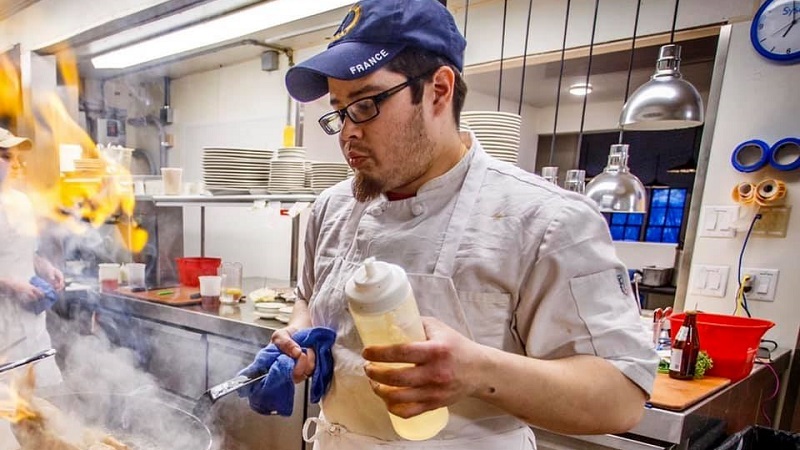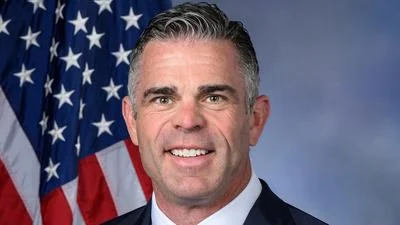Nick Dawson, chef de cuisine at Barringer's in Fish Creek, in the kitchen last summer. Dawson told a local news outlet that inflation is making it hard to make a profit these days. | Facebook/BarringersRestaurant
Nick Dawson, chef de cuisine at Barringer's in Fish Creek, in the kitchen last summer. Dawson told a local news outlet that inflation is making it hard to make a profit these days. | Facebook/BarringersRestaurant
As Green Bay-area restauranteurs report feeling the pinch of inflation, an eatery management instructor has some advice, a local news outlet reported.
NBC 26 Green Bay reported late last week that local restaurants are taking losses to keep their prices low, rather than lose customers by raising those prices. In the same news story, Jerry Lintz, a restaurant management instructor at Northeast Wisconsin Technical College, said there are other ways, besides raising prices, for inflation-beleaguered eateries to cut their costs.
“You can make minor changes in price, ingredients, change your business hours," Lintz said in NBC 26 Green Bay's Friday, Feb. 11 news story. "There's other things to do rather than looking at cost-cutting. Cost-cutting carries a negative approach."
Barringer's, a high-end steak and seafood place in Fish Creek, told NBC 26 Green Bay that inflation is making it hard to make a profit. Steak and seafood prices have skyrocketed over the past two years, as have labor costs, but raising prices isn't really an option, Nick Dawson, chef de cuisine at Barringer's, said in the news story.
"We've never had a complaint on any of our prices that we've set, mainly because I always have a standard, which is we sell the best steak," Dawson said. "The best burgers. Always. And the quality always shines through."
Dawson also reported Barringer's has gotten creative to find ways to cut costs, including shopping at local Door County farms.
Managers have also been working the line more than before, Dawson said.
"They don't own the business, but to be a good leader you have to have that ownership mentality," he said. "But the pandemic has brought us back into the kitchen. We are doing a lot of the work ourselves."
Approaches similar to what Lintz briefly recommended were described more fully in an article published weeks before Christmas by Modern Restaurant Management magazine. That article described problems restaurant owners may face as inflation settles in.
"Inflation can cause an increase in costs for those in the restaurant industry," the article said. "Rent, food, labor, utilities and insurance are prime examples. Customers can also be more hesitant to dine out as their everyday expenses are going up. Interest rates are also rising which in turn makes it more difficult for people to borrow money."
The article offered six tips for restaurant owners to fight the effects of inflation, "save your business money while improving it at the same time."
Restauranteurs may use technology to reduce labor costs by using waitlist kiosks, online management systems and QR codes.
"You can speed up tables and free up your employees' time," the article said. "Technology can optimize table utilization as well. Bussers can be informed in real-time when the table needs to be cleaned and servers can be kept up to date on all of their table’s statuses."
The article also recommended restauranteurs "rethink" their processes to pinpoint ways to reduce labor costs.
"Rethinking your processes to see if you can reduce labor cost is a great way to help your restaurant make more money," the article said. "If you have dishes that are very labor-intensive, consider if pre-made ingredients are worth the time saved or see if they can be made in a more efficient manner."
Other tips offered in the article are revisiting costs analysis, increasing prices in ways that "may prove beneficial," evaluating portion sizes and ingredients and renegotiating with technology providers.






 Alerts Sign-up
Alerts Sign-up